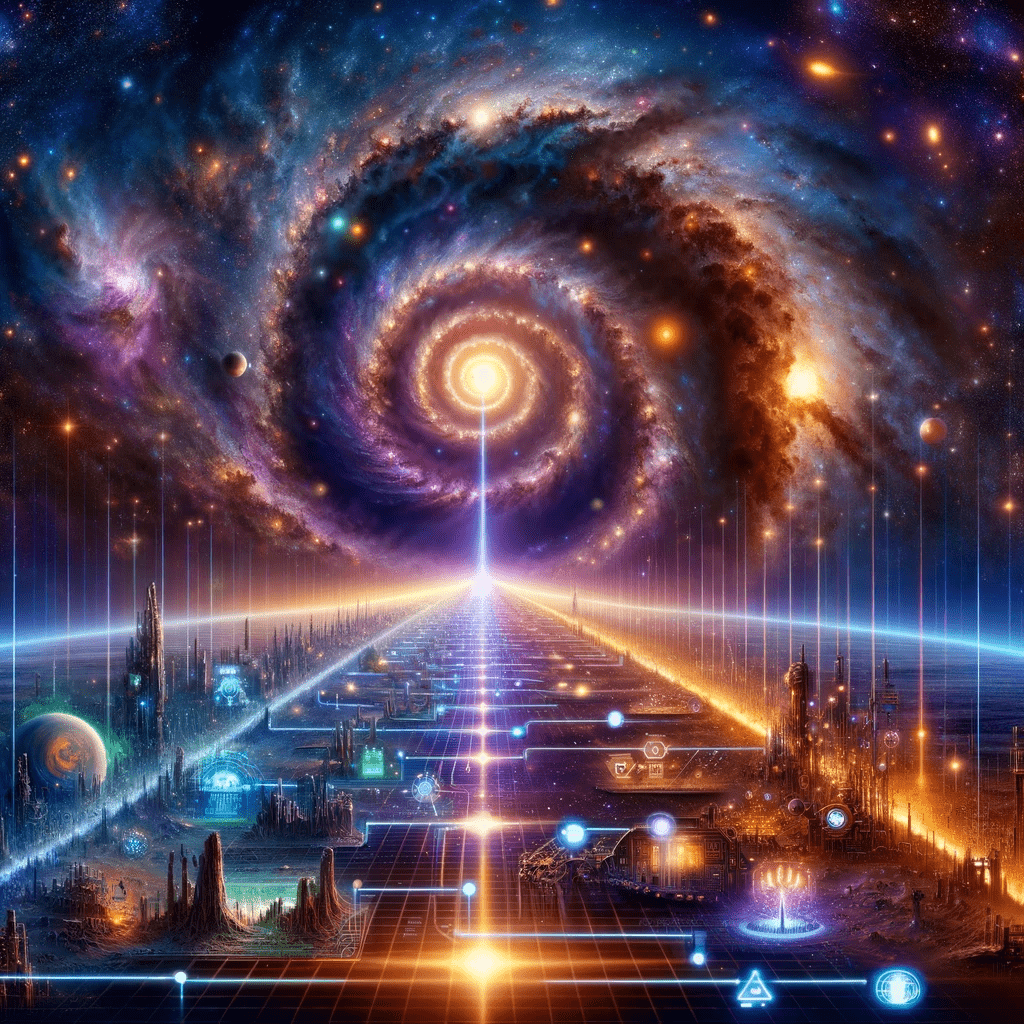The Great Filter

The Great Filter is a hypothetical explanation for why humans have not encountered any other intelligent life forms in the universe despite the high probability of their existence. The idea suggests that there is a hurdle or obstacle in the evolution of intelligent life that is so difficult to overcome that most civilizations are unable to cross it, resulting in their extinction. The Great Filter theory suggests that either we have already passed this filter, which is a rare event, or we have yet to encounter it, and it lies in our future.
The question of the Great Filter was first raised in 1998 by economist Robin Hanson, who suggested that the lack of evidence of extraterrestrial life may indicate that the filter is in our past. This means that the development of intelligent life is rare, and we may be one of the only civilizations to have overcome the filter. However, the possibility of the filter being in our future is equally plausible, which would suggest that we have not yet encountered it and may face extinction before we are able to advance beyond our current technological capabilities.
Fact 1: According to a study conducted by Oxford University in 2018, the likelihood of intelligent life existing elsewhere in the universe is high. The researchers estimated that there could be as many as 36 intelligent civilizations in our galaxy alone. However, this estimation does not take into account the possibility of the Great Filter.
Fact 2: The Great Filter theory has been used to explain the Fermi paradox, which asks why, given the high probability of the existence of extraterrestrial life, we have not yet encountered any other intelligent life forms. The theory suggests that the filter is the reason for this paradox and that most civilizations are unable to overcome it.
Fact 3: One potential explanation for the Great Filter is the idea of technological singularity, which suggests that as a civilization advances technologically, it may eventually create machines or artificial intelligence that surpasses human intelligence, leading to the extinction of the human race. This idea was popularized by inventor and futurist Ray Kurzweil in his book, The Singularity Is Near.
Some, like Stephen Hawking, have warned that the existence of extraterrestrial life may pose a threat to human civilization. Others, like physicist Michio Kaku, believe that the Great Filter may be in our past and that humans have already overcome it.
In his book, The Rare Earth Hypothesis, Peter Ward suggests that the Great Filter is in the development of complex multicellular life, which is rare in the universe. This theory has been criticized by other experts who argue that the development of multicellular life is not as rare as Ward suggests.
Some experts believe that the Great Filter could be in our future, meaning that we as humans have not yet passed it. If this is the case, it raises the possibility that our civilization could be on the brink of collapse, and we may not be able to overcome the challenge that lies ahead.
One potential example of the Great Filter in our future could be climate change. The Earth’s climate is rapidly changing, and if we do not take drastic action to reduce our carbon emissions and mitigate the effects of climate change, it could result in the extinction of our species. The collapse of our civilization due to climate change is a real possibility and has been the subject of many scientific studies and reports.
Another potential Great Filter for us could be the development of artificial intelligence. While AI has the potential to revolutionize many industries and improve our lives in countless ways, it could also pose a significant threat to humanity if it surpasses human intelligence and becomes uncontrollable. Experts like Stephen Hawking and Elon Musk have warned about the dangers of advanced AI and the possibility of it leading to the extinction of our species.
The Great Filter could also manifest as a global catastrophe, such as a massive asteroid impact or a supervolcano eruption, which could wipe out most or all of humanity.
A global conflict could also be sparked by other factors, such as resource scarcity, political instability, or ideological differences. If such a conflict were to occur on a massive scale, it could lead to the extinction of our species. Its important to recognize that the possibility of a catastrophic war still exists and that we must remain vigilant in our efforts to prevent it.
The concept of the Great Filter raises important questions about the future of our species and the importance of taking action to mitigate potential threats. It highlights the fragility of our existence and the need for us to be vigilant in our efforts to protect our planet and ensure the survival of our civilization.

